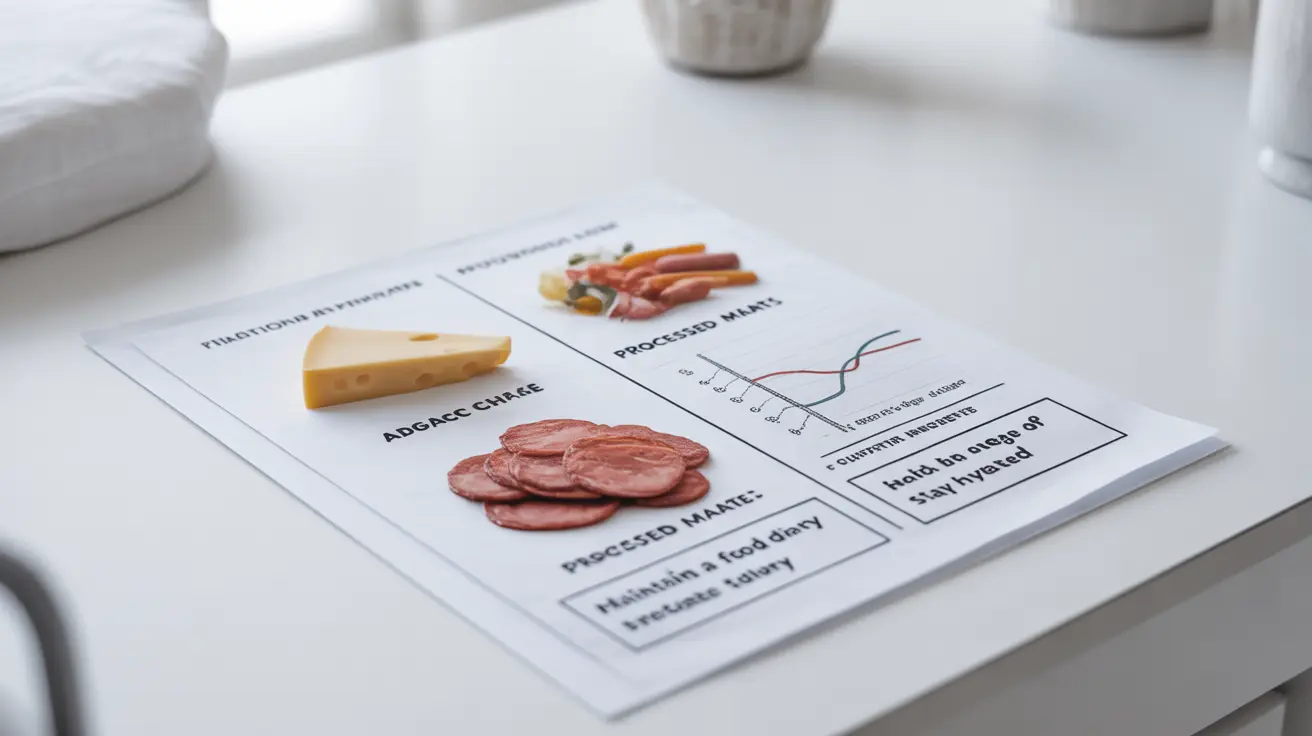Getting a headache after eating can be both uncomfortable and concerning. While most post-meal headaches aren't serious, understanding their causes and triggers can help you prevent and manage them effectively. This comprehensive guide explores why headaches occur after eating and what you can do about them.
Common Triggers of Post-Meal Headaches
Several factors can contribute to experiencing headaches after eating. Understanding these triggers is the first step in managing and preventing these uncomfortable episodes.
Food-Related Triggers
Certain foods and ingredients are known to trigger headaches in susceptible individuals:
- Aged cheeses containing tyramine
- Processed meats with nitrates
- Foods with MSG (monosodium glutamate)
- Chocolate and caffeine
- Artificial sweeteners
- Cold foods and beverages
Blood Sugar Fluctuations
Changes in blood sugar levels after eating can trigger headaches, particularly in people with diabetes or those who are sensitive to glucose fluctuations. This can occur when:
- Eating very large meals
- Skipping meals and then eating
- Consuming high-sugar foods
- Waiting too long between meals
Understanding Food Sensitivities and Allergies
Food allergies and sensitivities can manifest as headaches after consuming certain foods. These reactions can range from mild to severe and may be accompanied by other symptoms such as:
- Nausea or stomach discomfort
- Facial flushing
- Sinus pressure
- Fatigue
- Skin reactions
Prevention and Management Strategies
Taking proactive steps can help reduce the frequency and severity of post-meal headaches:
Dietary Modifications
- Keep a food diary to identify triggers
- Eat regular, balanced meals
- Stay hydrated throughout the day
- Avoid known trigger foods
- Choose fresh, whole foods over processed options
Lifestyle Adjustments
Making certain lifestyle changes can significantly impact the occurrence of post-meal headaches:
- Eating at regular intervals
- Managing portion sizes
- Staying well-hydrated
- Reducing stress around mealtimes
- Getting regular exercise
When to Seek Medical Attention
While most post-meal headaches are manageable, certain situations warrant medical attention:
- Severe or persistent headaches
- Headaches accompanied by vision changes
- Neurological symptoms
- Frequent vomiting
- Headaches that significantly impact daily life
Frequently Asked Questions
What are the most common causes of headaches after eating? The most common causes include food sensitivities, blood sugar fluctuations, certain food additives like MSG or nitrates, and specific trigger foods such as aged cheese or processed meats.
How can food allergies or sensitivities trigger headaches after meals? Food allergies and sensitivities can trigger an immune response in your body, leading to inflammation and headaches. This reaction can be immediate or delayed, making it important to track your food intake and symptoms.
Why do I get a headache after eating certain foods like cheese, chocolate, or cold drinks? These foods contain specific compounds that can trigger headaches in sensitive individuals. Cheese contains tyramine, chocolate has caffeine and other compounds, and cold foods can cause brain freeze or trigger nerve responses.
What are effective ways to prevent or treat headaches that occur after eating? Keep a food diary to identify triggers, eat regular balanced meals, stay hydrated, avoid known trigger foods, and consider taking preventive medications if recommended by your healthcare provider.
When should I see a doctor about persistent headaches that happen after meals? Consult a healthcare provider if you experience severe or frequent headaches after eating, especially if accompanied by other symptoms like vision changes, neurological symptoms, or significant impact on daily activities.




